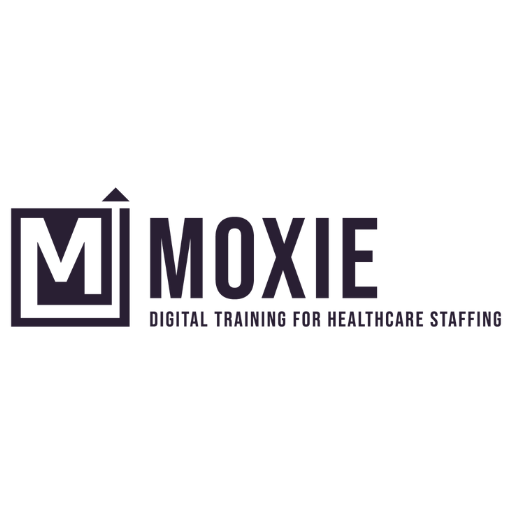By: Shari Dalton
Key Performance Indicators (KPIs), Wildly Important Goals (WIGs), Metrics, Expectations…whatever you call them, they are an important part of any sales/recruiting role and it is probably the number one question we get from recruiters, managers, and company leaders. So let’s tackle the topic: Why do we set them, and how do we set them? How do we hold folks accountable, and how often should we review them? (For the purpose of this article, we’ll refer to them as goals and we’ll use the recruiter as our employee.)
Why do we set them? Because our bosses are assholes and they want to micromanage us! FALSE! Goals are actually really important to any business. When new hires are brought into the organization, they need a clear path set for them on how to be successful within your organization. Goals are not a “one size fits all” metric for every recruiter within an organization, nor are they (and nor should they be) the same for every agency. As a recruiter grows their desk, their weekly and monthly goals change. Setting goals will also help management assess areas where there may be room for improvement with an employee.
Most importantly, goals should be set so that you can celebrate the wins!!
How do we set them? When setting goals, we need to think about what a recruiter MUST do each week. Calls (no brainer), texting (of course), receiving applications/resumes, building profiles, submitting candidates to jobs, getting a signed contract (also referred to as a lock or placement), hitting a target gross profit or revenue, retention, and referrals. But let’s also think about what may go into a recruiter’s day. Some recruiters are expected to source their own candidates from sites like Indeed or Zip Recruiter; some may be expected to spend time on social media posting jobs; some agencies may not have a fully-functioning job center for researching open jobs and their recruiters must seek out open jobs on the Shiftwise or Medefis websites. These are all things that MUST be taken into consideration when setting goals.
So, let’s say we decide that our weekly goal should be: 400 touches (calls/texts/emails), 8 hours of talk time, 3 new applications, 5 submittals, 2 signed deals, 22%+ gross profit. Do these 6 metrics make sense for your team? Are they expected to do anything outside of these 6 items each week? If the answer is “yes”, then let’s think about this again. Maybe we decide that the goal should be: 500 touches, 7 hours of talk time, bring in 50 new leads from a sourcing site, 2 new applications, 5 submittals, 1 signed deal, 22%+ GP. If a recruiter is also expected to seek out jobs on their own through third party websites, consider the amount of time that takes and adjust these numbers again. Remember, there is only so much time in one day!!
When breaking down these goals to members of the team, break them down to an easily attainable daily goal.
How do we hold folks accountable? Setting goals mean nothing if you’re not celebrating the wins and working through the losses. Consider a recruiter ramp up cycle. I’ll use myself as an example here – I considered myself to be a 6-week cyclical recruiter. For the first 1-2 weeks, my pipeline was relatively empty and I wasn’t making a lot of submittals, but my touches, talk time, and new applicants were through the roof. Then at weeks 3-4, my touches were a little lower because I was talking with new candidates, getting in paperwork, building profiles, and working on submittals. Then, you guessed it, in weeks 5-6, I’m droppin’ contracts like they’re hot, calling candidates, celebrating, working on credentialing, etc. My point here is, during that 5-6 cycle, I’m not going to hit all 6 of my goals each week. I’m only hitting 4 out of 6, but I’m still moving the needle forward which is something to be celebrated.
When setting goals, consider setting the expectation that each week, the recruiter must hit at least 4 out of their 6 goals. When we set 6 goals with the expectation of accomplishing all 6, we’re going to set the recruiter up for failure. It isn’t humanly possible to hit every goal each week, and in those rare instances when it does happen, then that calls for really special recognition!!!
When folks aren’t hitting their goals each week, work with them to figure out why. Maybe they are spending too much time in one area or another. In my experience, it can also be a lack of organization or confusion on which goals to stay focused on. Maybe they need some additional training or coaching? (I happen to know someone who can help with that!)
Lastly, consider tiering your recruiter goals based on performance. New recruit goals should look different from those who have 7-9 working professionals. And those recruiter goals should look different from those who have 15-16 working for them. You get the point, right? A recruiter working with 30 nurses shouldn’t be expected to source candidates at a high level, and at that point a lot of their focus is on retention and referrals versus hitting 500 touches per week.
How often should we review goals? You should review goals with your recruiters monthly, at a minimum, to see how they are doing and to stay on top of any trends. Set these goals as an indicator for when it’s time to step in and help out your recruiters or when it’s time to celebrate their success.
As an agency, goals should be reviewed on a quarterly or annual basis. The times they are a changin’, and you need to keep up with them! Don’t always look to your senior level recruiters for what success looks like. Keep tabs on up-and-comers to see what they are doing differently or better. Is their success an anomaly, or are they on to something that you should consider implementing as part of new goals? Remember though, recruiting isn’t a one-size-fits-all profession. What works for some, won’t work for others.
I hope you’ve enjoyed this blog and that it’s offered some insight to you and your team. We’d love to hear your feedback!!





